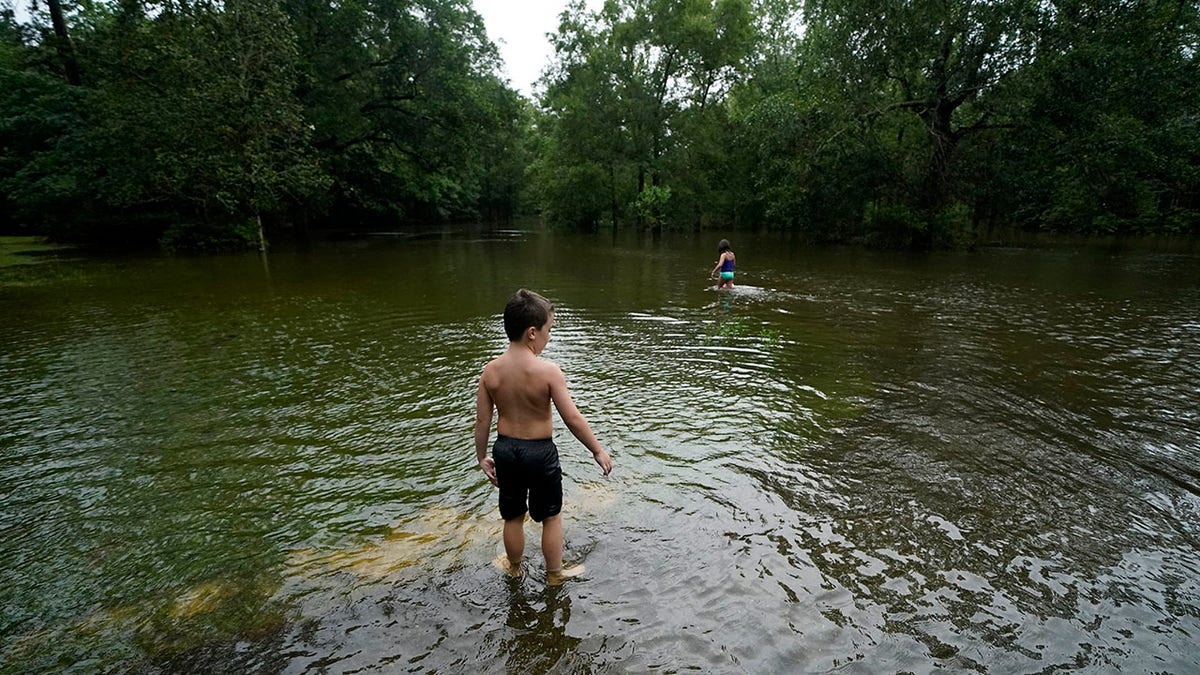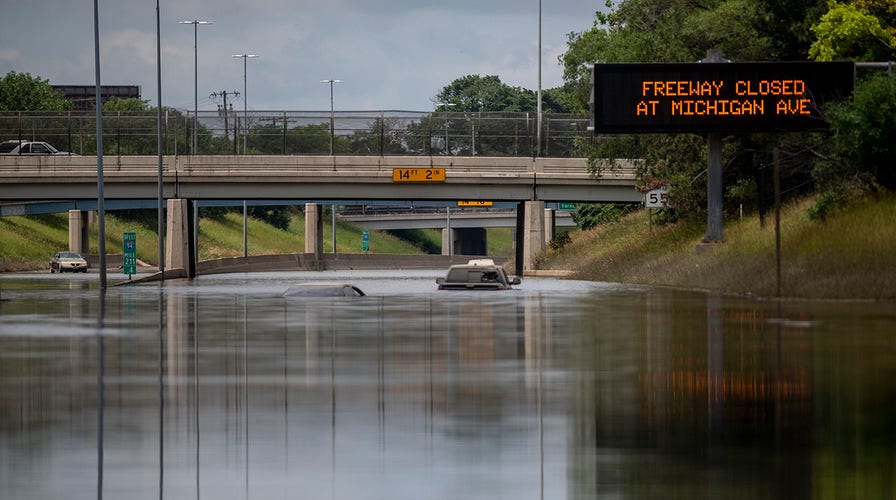Fox News Flash top headlines for July 1
Fox News Flash top headlines are here. Check out what's clicking on Foxnews.com.
As Tropical Storm Ida approaches western Cuba, inching closer towards the U.S., residents of the Gulf Coast are racing to prepare.
On Friday, shoppers waited in lines at New Orleans grocery stores and gas stations and the city offered sandbags.
The kickoff time for Saturday’s preseason game between the Arizona Cardinals and the Saints was moved up seven hours to avoid the severe weather after consultation with city and National Weather Service officials.
Mandatory evacuations have been ordered in Plaquemines Parish and Gov. John Bel Edwards declared a state of emergency on Thursday.
NASA STUDIES LOUISIANA DELTA SYSTEM IN EFFORT TO COMBAT GLOBAL CLIMATE CHANGE
Ida is forecast to strengthen over the next couple of days, becoming a Category 3 hurricane.
The storm would strike 16 years to the day since Hurricane Katrina made landfall as a Category 3 storm with 125 mph winds near the riverside community of Buras in Plaquemines Parish.
With the 2021 hurricane season underway, Americans have been forced to worry about the severe weather threats that it brings, like flooding and storm surge.
Tropical storms have already battered coastal states, including Henri and Fred.
In June, 14 people were killed in Alabama as Claudette moved over the Southeast.

Marina Kingsmill and her brother Raylan play in the flooded street in front of their home after Tropical Storm Claudette passed through in Slidell, La., Saturday, June 19, 2021. The National Hurricane Center declared Claudette organized enough to qualify as a named storm early Saturday, well after the storm's center of circulation had come ashore southwest of New Orleans. (AP Photo/Gerald Herbert)
The National Oceanic and Atmospheric Administration (NOAA) National Hurricane Center (NHC) reported in May that America is likely to be hit with another "above-normal" year, with 13 to 20 total named storms.
The agency predicted that six to 10 of those storms were likely to become hurricanes, with wind speeds of 74 mph or higher.
A June report from real estate analytics firm CoreLogic Inc. said hurricanes are expected to threaten more than 32 million homes across the coastal U.S., noting that flood insurance is not "uniformly purchased" and that up to 70% of damages from flood to homes is uninsured.
"Flood Factor" data from the First Street Foundation reportedly shows that the flood risk for properties may be much greater than government estimates show, with approximately 14.6 million properties at risk from what experts call a 100-year flood compared to the 8.7 million properties shown on federal government flood maps.
In addition, Mississippi State University's agricultural extension service announced last month that floods in early June may have done record-breaking agricultural damage, though assessments are far from done.
RECORD NORTHWEST HEAT MAY HAVE KILLED HUNDREDS
Michigan's Detroit area was flooded earlier this summer following a weekend deluge double the typical amount of rain for the month.
Detroit's Democratic Mayor Mike Duggan said his city had seen the most rain in one day in 80 years, noting that its stormwater system "was built for the climate of the 20th century and not the climate of the 21st century."
Thousands were affected and liberal Gov. Gretchen Whitmer also pinned the event on "old infrastructure combined with climate change."
The issue of climate change has been brought into the spotlight during the Biden presidency, and major concerns for many – especially in states threatened by hurricanes – are sea level rise, sinking land and erosion.

Michigan State Police examine a vehicles sitting in floodwaters on I-94 after a flood overwhelmed the interstate this past Friday June 25, 2021, the floodwaters have yet to subside on Monday, June 28 2021 in Detroit, Mich. (Nicole Hester/The Grand Rapids Press via AP)
As storms and weather become more severe due to human-caused climate change, these threats are expected to increase in strength and number.
Living in coastal areas or regions subject to flooding comes with challenges that linger long after the storm has passed.
To prepare for flooding, the Federal Emergency Management Agency (FEMA) advises that residents know the types of flood risks in their area; sign up for a community warning system and other emergency alerts; purchase or renew a flood insurance policy; keep important documents in a waterproof container and create digital copies; move valuables to higher levels; declutter drains and gutters, and install valves.
CLICK HERE FOR THE FOX NEWS APP
In addition, the agency recommends making a plan for pets and family, including practicing evacuation routes, reviewing shelter plans and gathering enough supplies and food to last for a few days.
The U.S. Centers for Disease Control and Prevention (CDC) also advises getting a COVID-19 vaccine in the event of a hurricane in addition to following emergency evacuation orders, protecting older adults and preparing an emergency "go kit."
According to the National Weather Service (NWS), there have been 71 flood fatalities in 2021.
The Associated Press contributed to this report.



